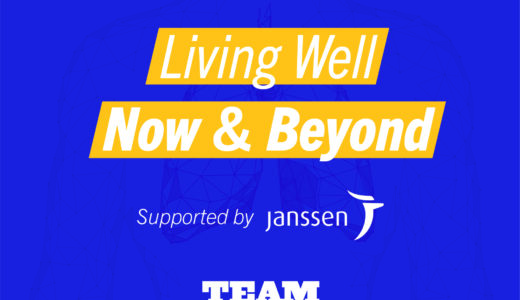Don’t Rush Things: Terry Jones

I remember that day, September 23, 2009. I was 61, and after several years of breathing problems and being treated for chronic obstructive pulmonary disease, my breathing continued to get worse, so my pulmonologist ordered more tests, most of which I had had before my first right heart catheterization. The cardiologist told me I had Pulmonary Arterial Hypertension (PAH) and that I should get all my affairs in order because there is no cure. Well, that’s all my wife and I heard as he continued explaining more about PAH.
When we went to my lung doctor’s office two days later, after crying, wondering what was in store for us, and researching all we could find about pulmonary hypertension (PH) on the internet, the doctor explained there was no cure and that the average life expectancy was two to three years. He also said there was a lot of research taking place, but there were only a few medications available. He wanted me to try this drug, Letairis, 5 mg, once a day. He reiterated that there was no cure but, if one of the medications worked, it should be able to treat the condition and extend my life.
I found out the cost for the medicine was over $8,000, so I checked to see if my insurance from my job at the Florida Department of Transportation would cover it, and it did. My co-pay would be $50 each month. My doctor ordered the prescription, and I received it that Monday. Everyone should look for assistance with co-pays or premium costs There are many organizations willing to help with that. Also, make sure your pulmonologist is qualified to treat PH. There are several PH treatment centers across the country, and it’s well worth it to contact one of them and see if they can recommend a doctor near where you live that may be affiliated.
Life got back to somewhat normal. At that time, I was able to take off my oxygen only when I sat. As soon as I moved, I needed it. After about three weeks and no noticeable change, I asked my doctor if there was some other drug that might work better. He wanted me to stay on the current medication and give it a chance to work, but did agree to increase the dose to 10 mg. For the next few weeks, my wife heard me complain about the medicine not working. Then one day, about 60 to 70 days into being on Letairis, she asked me what the heck was I doing in the kitchen without my oxygen. I had walked in to get a cup of coffee! That was when I knew the medication was working. Clearly, this is an example of taking your doctors’ advice and not rushing things. From then on, it has been a learning experience.
My wife and caregiver had a stroke in December 2009, and I became her caregiver until her death in October 2010. I learned what a caregiver really does, what is involved in being a caregiver, and then how to live without a caregiver.
My main goal is to live every day with a positive attitude because the days go by too quickly. Focusing on the negative things (and, believe me, they will happen) leads to depression, which affects my breathing. By maintaining a positive attitude, you’re breathing and your day improves. Having good days and bad days becomes a way of life, and you must strive for more good days than bad.
Continue to find avenues for help, such as local support groups. I have found talking and meeting with other folks who have the same limitations gives me a feeling of stability. Many of the members quickly become real friends, and it’s not unusual to get together throughout the month in addition to the regular monthly meetings.
Over the nine years I have been diagnosed, one of the most annoying and aggravating issues I have dealt with is the attitude of friends, relatives, and miscellaneous people. With this disease, people see you and think you look fine. They may even say so if you are parking in a handicapped parking spot. Learn to let whatever they say just fly over your head and carry on. I’m sure they mean well, but what I found out over time is that I had to learn my limitations and not be afraid to let people know what they are.
It is also important to know it’s okay to ask for help, whether it is for help around the house, the yard, or trips to the store. I had the most trouble with this one. I thought that since I had been able to do various tasks throughout my life, if I can no longer do them, then I must be defective or broken. Once I finally realized I could no longer do these activities because of a disease, I also realized people like to help when they can, so go ahead and ask. If they are busy or for some reason are not able to help, they will say so. Keep your head up high and smile. You will learn living day to day is not as bad as you may think.



